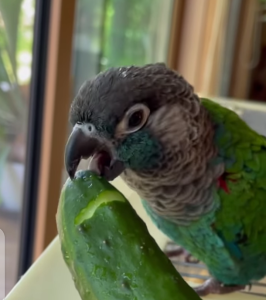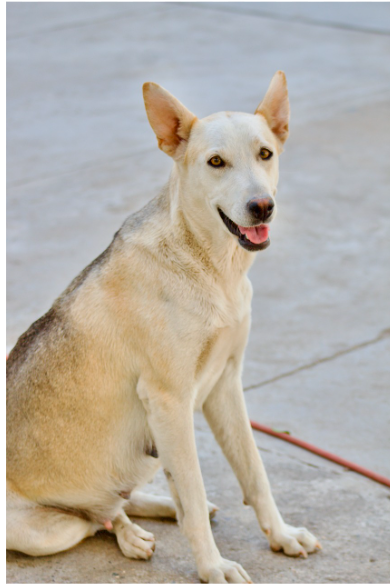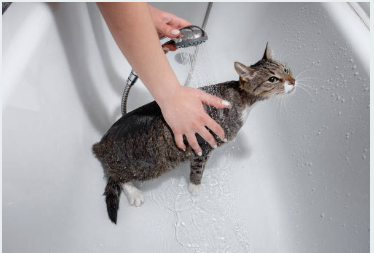Parrot Food: What to Feed Your Feathered Friend
Parrots are intelligent and social creatures that make excellent companions. However, they require proper care and attention to thrive in captivity, including a nutritious diet.
Parrots are omnivores, which means they eat both plants and animals. Their natural diet consists of various fruits, vegetables, seeds, nuts, and insects.
Providing your parrot with a balanced diet is essential for their overall health and well-being. A healthy diet will help your parrot maintain a healthy weight, robust immune system, and vibrant plumage. It will also help prevent various health problems, such as obesity, malnutrition, and feather plucking.
What to Feed Your Parrot
The best way to feed your parrot is to offer them a variety of foods from different food groups. This will help ensure they get all the nutrients they need.
Pelleted food is a good foundation for a parrot’s diet. Pellets are a nutritionally balanced food containing all the essential nutrients parrots need. However, it is important to note that pellets should not be the only food that your parrot eats.
Fresh fruits and vegetables are an essential part of a parrot’s diet. They provide a variety of vitamins, minerals, and antioxidants that are essential for good health. Some good fruits and vegetables to feed your parrot include:
- Apples
- Bananas
- Berries
- Broccoli
- Carrots
- Corn
- Cucumbers
- Grapes
- Mangoes
- Melons
- Oranges
- Papaya
- Peaches
- Peppers
- Pears
- Peas
- Spinach
- Sweet potatoes
- Tomatoes
Soaked or sprouted seeds are another excellent source of nutrients for parrots. Soaking or sprouting seeds improves their digestibility and increases their nutrient content. Some good seeds to feed your parrot include:
- Alfalfa seeds
- Chia seeds
- Millet
- Flax seeds
- Hemp seeds
- Quinoa
- Sunflower seeds
Nuts are a good source of protein and healthy fats for parrots. However, feeding your parrot nuts in moderation is essential, as they can be high in calories. Some good nuts to feed your parrot include:
- Almonds
- Cashews
- Peanuts
- Walnuts
Insects are a natural part of a parrot’s diet. However, it is essential only to feed your parrot insects raised in a captive environment. This is to avoid exposing your parrot to parasites and diseases. Some good insects to feed your parrot include:
- Crickets
- Mealworms
- Superworms
How to Feed Your Parrot
Removing any uneaten food from your parrot’s cage after a few hours is essential. This will help to prevent the food from spoiling and attracting pests.
You should also provide your parrot with fresh water at all times.
Feeding Schedule
The ideal feeding schedule for your parrot will vary depending on their age, species, and activity level. However, a general rule of thumb is to feed adult parrots two to three times per day.
Young parrots and parrots that are very active may need to be fed more often.
Foods to Avoid
There are several foods that you should avoid feeding your parrot. These foods can be toxic to parrots or can cause health problems.
Some foods to avoid feeding your parrot include:
- Avocado
- Chocolate
- Coffee
- Garlic
- Grapes
- Green potatoes
- Onions
- Peaches
- Pears
- Pits and seeds of fruits
- Rhubarb
- Salt
- Sugar
- Tea
- Tomatoes
- Uncooked meat
Tips for Feeding Your Parrot
Here are a few tips for feeding your parrot:
- Offer your parrot a variety of foods from different food groups each day.
- Remove any uneaten food from your parrot’s cage after a few hours.
- Provide your parrot with fresh water at all times.
- Avoid feeding your parrot toxic foods.
- Talk to your veterinarian about the best diet for your parrot.
Conclusion
Providing your parrot with a balanced diet is essential for their overall health and well-being. By following the tips above, you can ensure that your parrot gets all the nutrients needed to live a long and healthy life.
Additional Information
Nutritional Needs of Parrots
Parrots have several specific nutritional needs. These needs vary depending on their age, species, and activity level. However, some general dietary guidelines can be followed.
Protein
Protein is essential for the growth and repair of tissues. Parrots should get around 20% of



